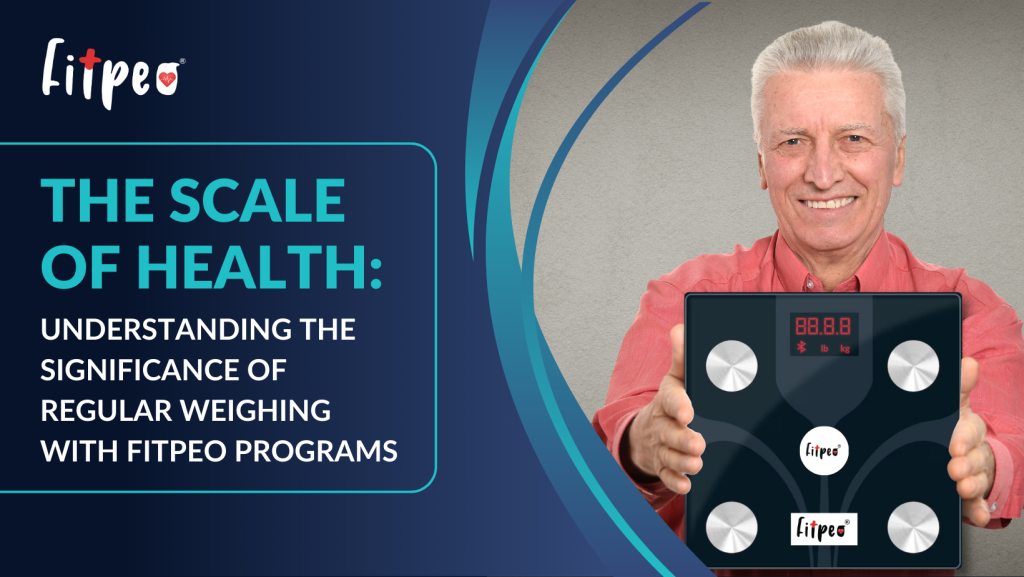
Introduction:
In a recent survey conducted by the Cleveland Clinic, a striking revelation emerged – while a significant majority of Americans (88 percent) acknowledge the crucial link between a healthy heart and maintaining a healthy weight, the proactive steps taken to address personal weight concerns fall short. Despite 74 percent expressing concern about their weight and 65 percent worrying about the potential risk of heart disease due to extra pounds, a mere 43 percent have attempted dietary changes to address weight-related issues. Alarmingly, 40 percent of those self-identifying as overweight or obese admit to being less than vigilant about their food choices.
This stark reality underscores the prevalent gap between understanding the importance of a healthy weight and actively pursuing measures to achieve it. It sets the stage for a crucial conversation about the role of regular weighing as a fundamental practice for managing overall health. In this article, we delve into the significance of monitoring weight and shed light on how FitPeo programs offer a comprehensive solution, recognizing the critical importance of regular weighing in the holistic pursuit of well-being.
1. The Importance of Regular Weighing:
Regular weighing is a cornerstone of health monitoring, providing valuable insights into an individual’s well-being. While weight alone does not tell the entire story, it serves as a fundamental metric that can indicate changes in health, guide lifestyle decisions, and prompt timely interventions. FitPeo programs elevate the scale from a simple device to a dynamic tool for comprehensive health management.
2. Weight as an Indicator of Overall Health:
Weight serves as a crucial indicator of overall health, reflecting the balance between calorie intake and expenditure. FitPeo programs integrate weight monitoring into a broader health context, recognizing its role as a vital sign that can signal potential issues or improvements in various aspects of well-being.
3. Tracking Changes and Trends:
FitPeo programs support continuous weight monitoring, allowing individuals to track changes and trends over time. This continuous stream of data offers a more nuanced understanding of how lifestyle choices, dietary habits, and physical activity impact weight. This insight becomes valuable for making informed decisions about health and well-being.
4. Health Conditions and Weight:
Weight serves as a pivotal indicator of various health conditions, and FitPeo programs play a significant role in promoting health awareness. These programs assist individuals in recognizing the intricate relationship between weight fluctuations and prevalent conditions like obesity, diabetes, and cardiovascular issues. Regular monitoring of weight acts as an early warning system, offering insights into potential health risks. Notably, the Cleveland Clinic survey highlighted a gap in understanding, indicating that many Americans may not fully grasp the profound impact excess weight can have on their heart and overall health.
5. Setting Personalized Health Goals:
FitPeo programs empower patients to set personalized health goals related to weight management. Whether the goal is to achieve a healthy weight range, lose or gain weight for specific health reasons, or maintain a stable weight, the goal-setting feature fosters a proactive approach to managing weight as part of an overall health strategy.
6. Holistic Health Monitoring:
FitPeo programs encourage a holistic approach to health by integrating weight monitoring with other health metrics. By considering weight alongside factors like blood pressure, physical activity, and sleep patterns, individuals gain a comprehensive view of their well-being. This holistic perspective enhances the understanding of how different aspects of health interconnect.
7. Understanding Body Composition:
Weight alone may not provide a complete picture of health. FitPeo programs can go beyond traditional scales by incorporating features that measure body composition, including muscle mass, fat percentage, and water content. This detailed understanding allows individuals to focus on improving body composition rather than just aiming for weight loss.
8. Educational Resources for Informed Decisions:
FitPeo programs complement weight monitoring with educational resources. Patients gain access to information about the impact of weight on overall health, the importance of a balanced diet, and strategies for maintaining a healthy weight. This knowledge empowers individuals to make informed decisions about their lifestyle.
Conclusion:
Regular weighing, when integrated into a comprehensive health monitoring strategy with FitPeo programs, becomes a powerful tool for understanding and managing overall health. By recognizing weight as a dynamic indicator and combining it with other health metrics, individuals can proactively address potential issues, set personalized goals, and make informed decisions on their journey toward optimal well-being. FitPeo programs elevate the scale to a holistic health companion, emphasizing the importance of regular weighing in the pursuit of a healthier and more balanced life.
Ready to embark on a journey towards a healthier and more balanced life? Start today with FitPeo programs to elevate your understanding of overall health through regular weighing. Take the first step towards comprehensive well-being. Your healthier tomorrow begins now. Visit https://fitpeo.com/ and embrace a holistic approach to health monitoring.